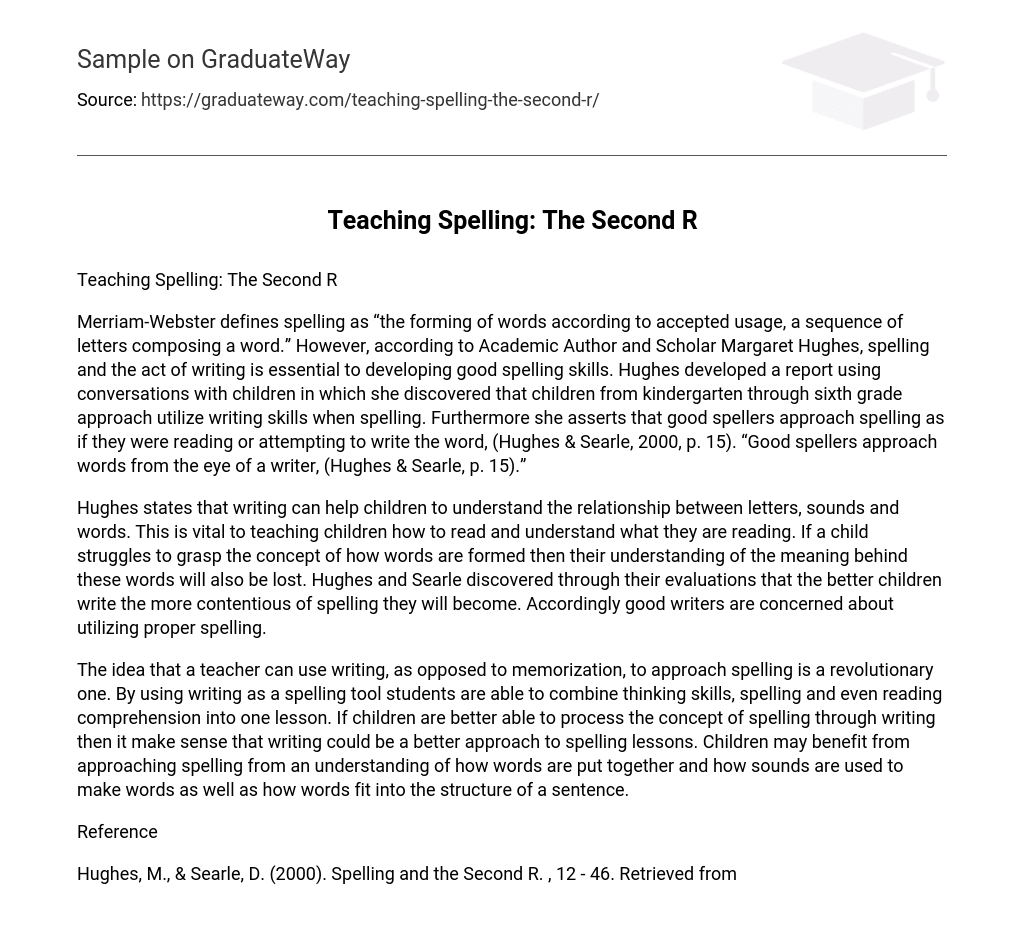Merriam-Webster defines spelling as “the forming of words according to accepted usage, a sequence of letters composing a word.” However, according to Academic Author and Scholar Margaret Hughes, spelling and the act of writing is essential to developing good spelling skills. Hughes developed a report using conversations with children in which she discovered that children from kindergarten through sixth grade approach utilize writing skills when spelling. Furthermore she asserts that good spellers approach spelling as if they were reading or attempting to write the word, (Hughes & Searle, 2000, p. 15). “Good spellers approach words from the eye of a writer, (Hughes & Searle, p. 15).”
Hughes states that writing can help children to understand the relationship between letters, sounds and words. This is vital to teaching children how to read and understand what they are reading. If a child struggles to grasp the concept of how words are formed then their understanding of the meaning behind these words will also be lost. Hughes and Searle discovered through their evaluations that the better children write the more contentious of spelling they will become. Accordingly good writers are concerned about utilizing proper spelling.
The idea that a teacher can use writing, as opposed to memorization, to approach spelling is a revolutionary one. By using writing as a spelling tool students are able to combine thinking skills, spelling and even reading comprehension into one lesson. If children are better able to process the concept of spelling through writing then it make sense that writing could be a better approach to spelling lessons. Children may benefit from approaching spelling from an understanding of how words are put together and how sounds are used to make words as well as how words fit into the structure of a sentence.
Reference
Hughes, M., & Searle, D. (2000). Spelling and the Second R. , 12 – 46. Retrieved from





